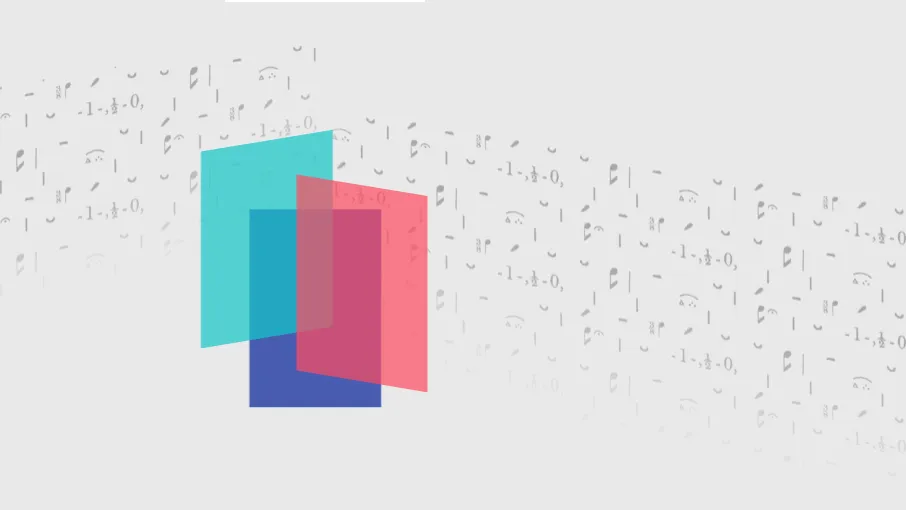Princeton Prosody Archive's Year in Review
4 January 2021

The Princeton Prosody Archive ’s (PPA) past year has been characterized by our ongoing work to expand the collection of eighteenth-century materials in the Archive, responding to the COVID-19 crisis by creating internship and assistantship opportunities for students, and pushing key updates to the site.
A year ago, at the start of 2020, the PPA team redoubled our efforts to add prosodic materials from Eighteenth Century Collections Online (ECCO). Building up the eighteenth-century collection in our nineteenth-century-focused Archive will facilitate new research on how prosodic discourse developed between and across the centuries. This effort extends ongoing interchanges between eighteenth- and nineteenth-century scholars of Historical Poetics that coalesced in two conferences: “Historical Poetics in the Eighteenth and Nineteenth Centuries” (Connecticut College, November 2–4, 2017) and “Historical Poetics Now” (University of Texas-Austin, November 7–10, 2019).
In partnership with Gale Cengage, Meredith Martin, Project Director of PPA and Faculty Director of the CDH, stategized with PPA Project Manager Mary Naydan and Graduate Researcher Yan Che on how to comb through ECCO’s 200,000+ volumes to find relevant materials. The result was a multistep process that involved keyword searches against Library of Congress subject headings, followed by keyword searches against full text with results ranked by probable relevancy. Through this process, we narrowed down our sights to 1,874 items.
Our efforts to hand curate this list further were paused by the COVID-19 crisis, as our focus shifted to supporting undergraduate and graduate students faced with financial uncertainties. In the spring semester, Professor Martin continued to teach her graduate seminar, “Stories of Poetic Forms,” virtually; graduate students in this class used the PPA to research histories of the ballad, sonnet, lyric, and line. Concurrently, Martin spearheaded efforts to create funding opportunities for students through the Department of English’s Bain-Swiggett Fund. As a result of these efforts, the PPA hired Ph.D. candidate Caitlin Crandell as a Bain-Swiggett Assistant in Research for academic year 2020–2021 to support her dissertation completion. Crandell is using the Archive to research the intersections of prosody and music/performance in the nineteenth century; this coming spring, she will also be completing data cleaning work related to our long-term goal of integrating periodical excerpts into the Archive.
Over the summer, the PPA also hired two undergraduate interns from the Department of English, Andrew Tye ’21 and Margaret King ’22, both supported by the Bain-Swiggett Fund. Supervised by Naydan, Tye and King learned about historical prosody and poetics, explored the Archive, and generated their own research projects. Tye’s essay on paratextual metadata in Enlightenment-era prosodic texts and King’s essay on prosodic discourse in the Twittersphere are now published on the Editorial section of the PPA site. Additionally, undergraduate interns for the Shakespeare and Company Project completed some standalone tasks for the PPA, including finding the HathiTrust IDs of items cited in T. V. F. Brogan’s prosodic bibliography that have recently entered the public domain.
In the fall, the development team at the Center for Digital Humanities at Princeton worked on some exciting updates to the PPA site. In addition to further refining the keyword search to yield more relevant results, the development team rebuilt the backend infrastructure to allow us to add new works from HathiTrust to the site via rsync after negotiations with HathiTrust over use of the API stalled. After robust acceptance testing, this functionality is set to be released early in the new year. Items we are thrilled to be able to add include Romesh C. Dutt’s Ramayana (1910), which includes a fascinating prosodic appendix, George Bethune’s British Female Poets (1848), and dozens of new public domain materials from 1923–1925. This feature, along with our ongoing ECCO work, will substantially enrich the Archive’s holdings.
In 2021, we look forward to wrapping up our ECCO work and deciding the direction of the site’s expansion in consultation with our advisory board. Ideally, we’d like to expand opportunities for undergraduates and graduate students to work with the material and improve its access and use in classrooms and research. Martin will publish an essay in the Bloomsbury Handbook of Corpus Linguistics about ways that scholars of linguistics might explore historical and cultural history using the Archive’s materials, and will continue work on her book project, Prosody as Archive: Liner Notes on Poetry and Code, during her upcoming sabbatical.